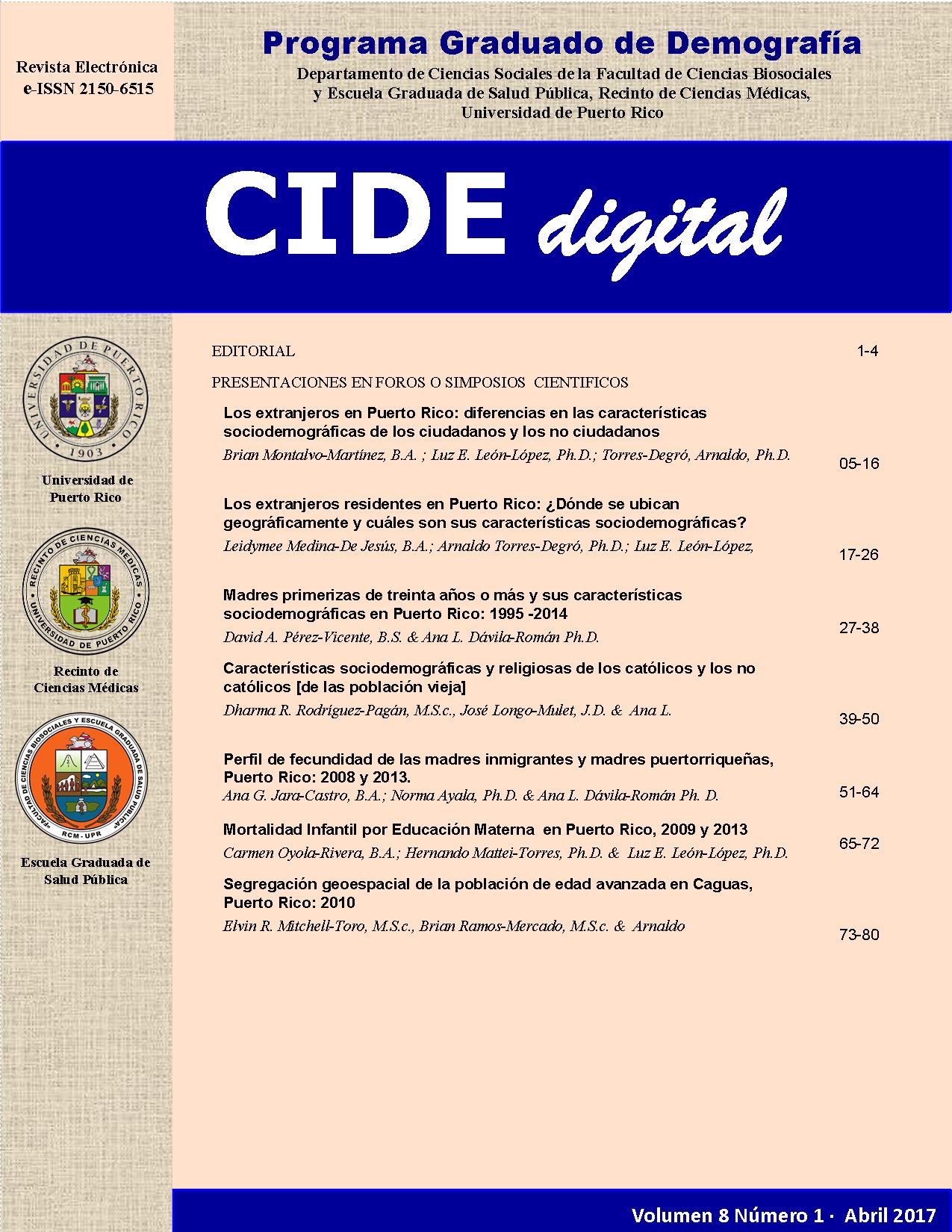Abstract
Background/Objective. An increase in the elderly population has been observed in Puerto Rico. Older adults' faith helps them cope with the various challenges they face. This study aims to describe socio-demographic and religious characteristics between Catholics and non-Catholics. Method. This research is descriptive in nature. Data from the project: Puerto Rican Elderly Health Conditions (PREHCO 1) was used. The sample is representative of the population of 60 years or more in Puerto Rico, and contains 4,291 people. For this work, 3,379 adults 60 years and older who did not need substitute informant will be considered. Protestants, Jehovah's Witnesses, Adventists, and Pentecostals were classified as non-Catholics. Results. Religious beliefs as health aids seem to have a greater impact for non-Catholics (90.8%) than for Catholics (80.2%). The proportion of Catholics (34.7%) who do not participate in religious services doubles that of non-Catholics (18.4%). Of those who attend religious services, 87.7% of non-Catholics go at least once a week compared to 61.2% of Catholics. In addition, 51.0% of Catholics reported participating in church social events while 73.6% of non-Catholics were involved. Conclusion. Catholics and non-Catholics differ little in religious beliefs as health aids; however, non-Catholics seem to demonstrate more of their religious practices including church social activities.Downloads
Download data is not yet available.

